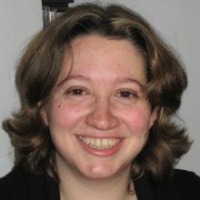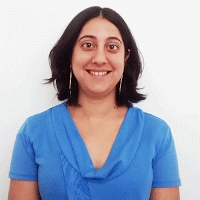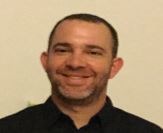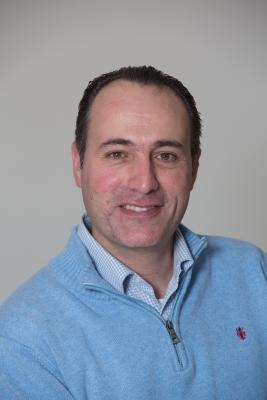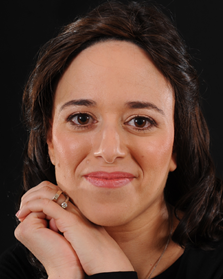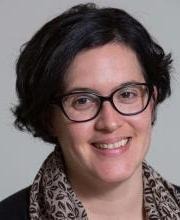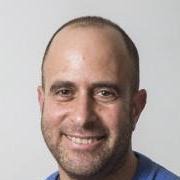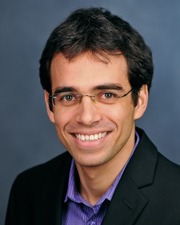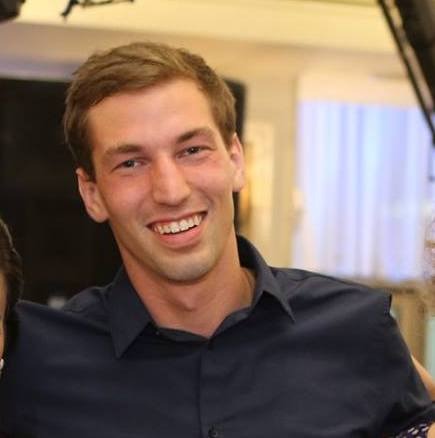
Eric Shuman
My research interests broadly focus on collective action and how it affects the relations between groups embedded in unequal social relations or in conflict. In particular, I am interested in different types of collective action (e.g. nonviolent, nonnormative, violent). My research examines psychological factors that promote support for these types of action, but also the effects and effectiveness of these types of action at motivating the high power group to address inequality and pursue conflict resolution.
Currently, my main research focus is understanding the psychological effects of collective action by disadvantaged groups, with the aim of understanding what makes collective action effective in driving social change. I do this using a number of research methodologies. First, I use experimental methods where I randomly expose participants to similar actions, but where key components (e.g. the tactics, participants, or messages) have been systematically varied, and then measure their reactions. This allows me to make causal conclusions about the impact of various features of collective action. However, I also complement, these controlled experimental studies with longitudinal studies of real-world action as it happens. For example, I have been involved in two projects examining the impact of two large scale actions over time (#MeToo and March for our Lives). I hope to use the insights gained from this research to inform efforts for social change towards greater equality between groups.
Eric Shuman is a doctoral candidate at the Department of Psychology, University of Groningen (supervisors: Professor Martijn van Zomeren, Professor Eran Halperin, Professor Tamar Saguy) and a visiting doctoral fellow at the Hebrew University and the Swiss Center for Conflict Research, Management and Resolution. His research interests include collective action and emotions, and power relations in conflict. In particular, he is interested in different types of collective action (e.g. nonviolent, nonnormative, violent), and their effectiveness. Apart from his academic work, Eric works as a consultant in the Learning and Knowledge Development department of aChord: Social Psychology for Social Change. aChord Center is a non-profit organization that specializes in the social psychology of intergroup relations. The center's unique added value is in developing innovative, evidence-based, practical knowledge and tools to improve intergroup relations, by utilizing cutting-edge social psychological theory and data. Eric works to develop theory and research-based tools that practitioners at aChord can use for their work in the field.
Publications:
Hasan-Aslih, S., Shuman, E., Goldenberg, A., Pliskin, R., van Zomeren, Halperin, E. (in press). The Quest for Hope: Disadvantaged Group Members Can Fulfill Their Desire to Feel Hope, but only when They Believe in Their Power. Social and Personality Psychology Science.
Shuman, E., Johnson, D., Saguy, T., & Halperin, E. (2018). Threat to the group’s image can motivate high identifiers to take action against in-group transgressions. Personality and Social Psychology Bulletin, 44, 1523-1544. DOI:10.1177/0146167218768800
Shuman, E., Halperin, E., & Reifen Tagar, M. (2018). Anger as a catalyst for change? Incremental beliefs and anger’s constructive effects in conflict. Group Processes & Intergroup Relations, 21, 1092-1106. DOI:10.1177/1368430217695442
Shuman, E., Cohen‐Chen, S., Hirsch‐Hoefler, S., & Halperin, E. (2016). Explaining normative versus nonnormative action: The role of implicit theories. Political Psychology, 37, 835-852. DOI:10.1111/pops.123
|
|
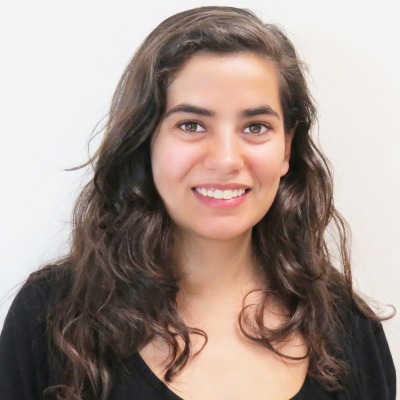
Yifat Mor
My current research examines Israeli-Jews’ social, political and commercial uses of Facebook as members of a divided society, embedded in a protracted, intractable and asymmetrical conflict between Israeli-Jews and Palestinians.
While the tools and affordances provided by Facebook for private users as well as advertisers are globally unified, the specific socio-political context of a divided society embedded in a protracted, intractable conflict encourages users to come up with creative coping strategies, practices and behaviors that help customize Facebook to their needs, motivations and desires. My research examines dilemmas, challenges and coping strategies that characterize Facebook usage for political expression among Jewish-Israeli youth as members of a highly divisive society embedded in a protracted, intractable conflict. Moreover, it aims to explore to what extent and in which ways can Facebook promote or repress interactions between members of the divided Israeli society that hold opposing views regarding the Israeli-Palestinian conflict and its resolution, and between members of opposing groups in this conflict.
Yifat Mor is a doctoral candidate at the Department of Communication (supervisor: Professor Ifat Maoz) and a doctoral fellow at the Swiss Center for Conflict Research, Management and Resolution. Her research interests are impression management on social media, social media and political participation, digital activism, online intergroup dialogue, targeting and digital marketing. Apart from her academic work, Yifat is an online content creator and community manager, working with governmental and non-governmental organizations and harnessing her knowledge and experience to promote various causes using digital media.
Publications:
Mor, Y., Kligler-Vilenchik, N., & Maoz, I. (2015). Political expression on Facebook in a context of conflict: Dilemmas and coping strategies of Jewish-Israeli youth. Social Media+ Society, 1(2), 2056305115606750.
Mor, Y., Ron, Y., & Maoz, I. (2016). “Likes” for Peace: Can Facebook Promote Dialogue in the Israeli–Palestinian Conflict? Media and communication, 4(1), 15-26.
|
|
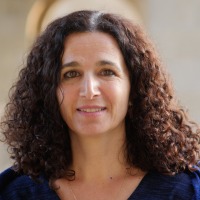
Clila Gerassi-Tishby
My current research deals with perceptions, societal beliefs, dilemmas and narratives that emerge in relation to the acquisition of the Hebrew language among East Jerusalem Palestinians.
Language serves as the first function for creating social connections; moreover, it is a significant symbol of cultural unity and it has a central role in formulating ethnic and national identities. The ambivalent relationship of identity to language is well expressed by post-colonial literature: language includes a dimension of resistance because it is a tool of control, oppression, and obedience. Nonetheless, at the same time, the language of the colonizer also serves as a means of advancement and social mobility. The aim of my research is to examine perceptions, attitudes, and emotions of a disadvantaged minority group in relation to the acquisition of the language of the dominant majority, as well as the motivations, dilemmas, and modes of coping with the need to acquire the language in the context of an intractable asymmetric conflict—the Israeli-Palestinian conflict. Specifically, the study explores the views of East Jerusalem Palestinians who chose to study the Hebrew language in a Hebrew language school in West Jerusalem.
Considering that language can serve as a government tool for oppressing the minority and subordinating national identity, there are situations in which members of the subordinate group, in acquiring the language of the dominant group, act against their interests. In the case of the Palestinian residents of East Jerusalem, these interests are connected to their ideological and national struggle and the need for self-definition and for a Palestinian national identity. Thus, paradoxically, the motivation to acquire the Hebrew language can be perceived both as a tool to deal with a reality of oppression and as an act of resistance, activism, and empowerment. Nonetheless, in the case of a minority population in the context of a violent and intractable conflict such as the Israeli-Palestinian conflict, acquiring the language of the dominant group is accompanied by dilemmas and difficulties. Learning Hebrew is perceived in a complex and ambivalent manner, which includes the real and symbolic advantages and disadvantages, given the unique situation of the Palestinians as a deprived population in an asymmetric conflict.
Clila graduated with honor from the Jerusalem School of Business Administration at the Hebrew University. In 2011, as part of her studies at the Swiss Center for Conflict Research, she wrote a seminar project titled “Perceptions, attitudes, and emotions of Palestinian Hebrew teachers in relation to teaching the Hebrew language in East Jerusalem Palestinian schools”. This work led to her acceptance to the Department of Communication as a “supplementary research student.” Today she is a doctoral candidate at the Department of Communication (supervisor: Professor Ifat Maoz). Her main research interests are: sociopsychological dynamics, East Jerusalem Palestinians, the Israeli-Palestinian conflict, minority language rights, language ideology and policy.
|
|





